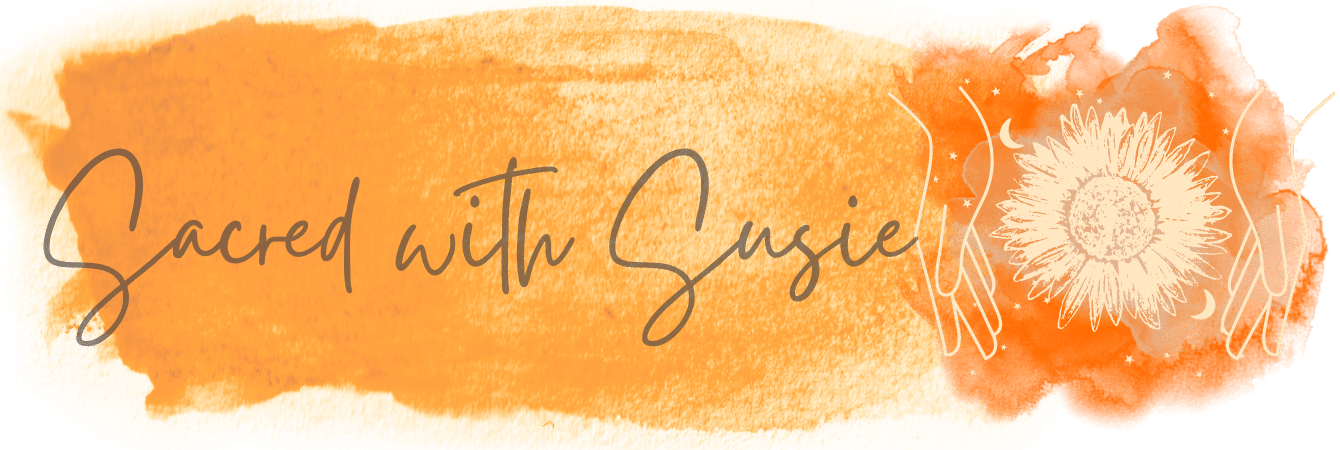Use these 5 simple ways to reduce your environmental footprint and become a better human!
1.Don’t be a dick, give plastic bags the flick

Why?
- Australians use 3.92 billion plastic bags a year. We’re the second highest producers of waste, per person, in the world. Each of us send over 690kg of waste to landfill each year (Clean Up Australia)
- Plastics are made from non-renewable natural resources such as crude oil, gas and coal.
- They’re not biodegradable – they end up clogging storm water infrastructure, floating down waterways, and spoiling the landscape.
- They may break down into smaller plastic particles that continue to pollute our soil and water.
- They also threaten our wildlife – birds, turtles and other marine life eat them thinking they are food. Thousands of animals die each year from this.
- The production, transportation and collection of plastic bags for landfill or recycling uses enormous quantities of petroleum, another non-renewable resource.
- More information on why you should stop using plastic bags
How?
- Leave some reusable shopping bags in your car and take them every time you go shopping. (I always seem to forget to bring these with me and have to end up carrying 10 items in my hands or stuffing everything into my handbag! But at least if I keep them in my car I can quickly run to it and get them.) I love Hunt and Gather Grocer’s mesh bags and Love Thy Earth‘s canvas tote bags. Both brands were started by local Gold Coast small business boss babes.
- When you are buying fruits and vegetables don’t use those small plastic bags to collect each item! They are unnecessary! Put your three zucchinis straight into your shopping trolley! Or invest in some reusable produce bags like these ones from Love Thy Earth (a small business mother & daughter duo from the Gold Coast). I also love using Tree of Life’s recycled sari bags instead as produce bags. They are made from up-cycled sari material from India and 100% of the sale price goes to A Touch of Love, a hands-on, down to earth charity working in India and Nepal.
- Try not to buy food in unnecessary packaging
- Instead of buying pre-packaged or pre-cut vegetables choose your own and put them straight in your trolley or your new reusable produce bags. It’s cheaper to buy this way too!
- For example, a tray of mushrooms (which uses a plastic tray and plastic wrap) vs. pick your own mushrooms from the box and either place straight into your trolley or use a brown paper bag (and then recycle it!).
- Buy all your dry food (pasta, rice, pulses, legumes, nuts, seeds, oats etc.) from stores you can buy them in bulk from. Take in your jars or reusable produce bags and fill them up with your goodies instead of using plastic bags or plasticised paper bags. This is such a big one! Most of the food we buy from the supermarket comes in soft plastic, if we can switch to buying from stores we can refill our own containers. This cuts down on soooo much plastic waste! Two great stores that allow you to do this are Flannerys and The Source Bulk Foods.
- Instead of buying pre-packaged or pre-cut vegetables choose your own and put them straight in your trolley or your new reusable produce bags. It’s cheaper to buy this way too!
2. Switch to environmentally friendly products
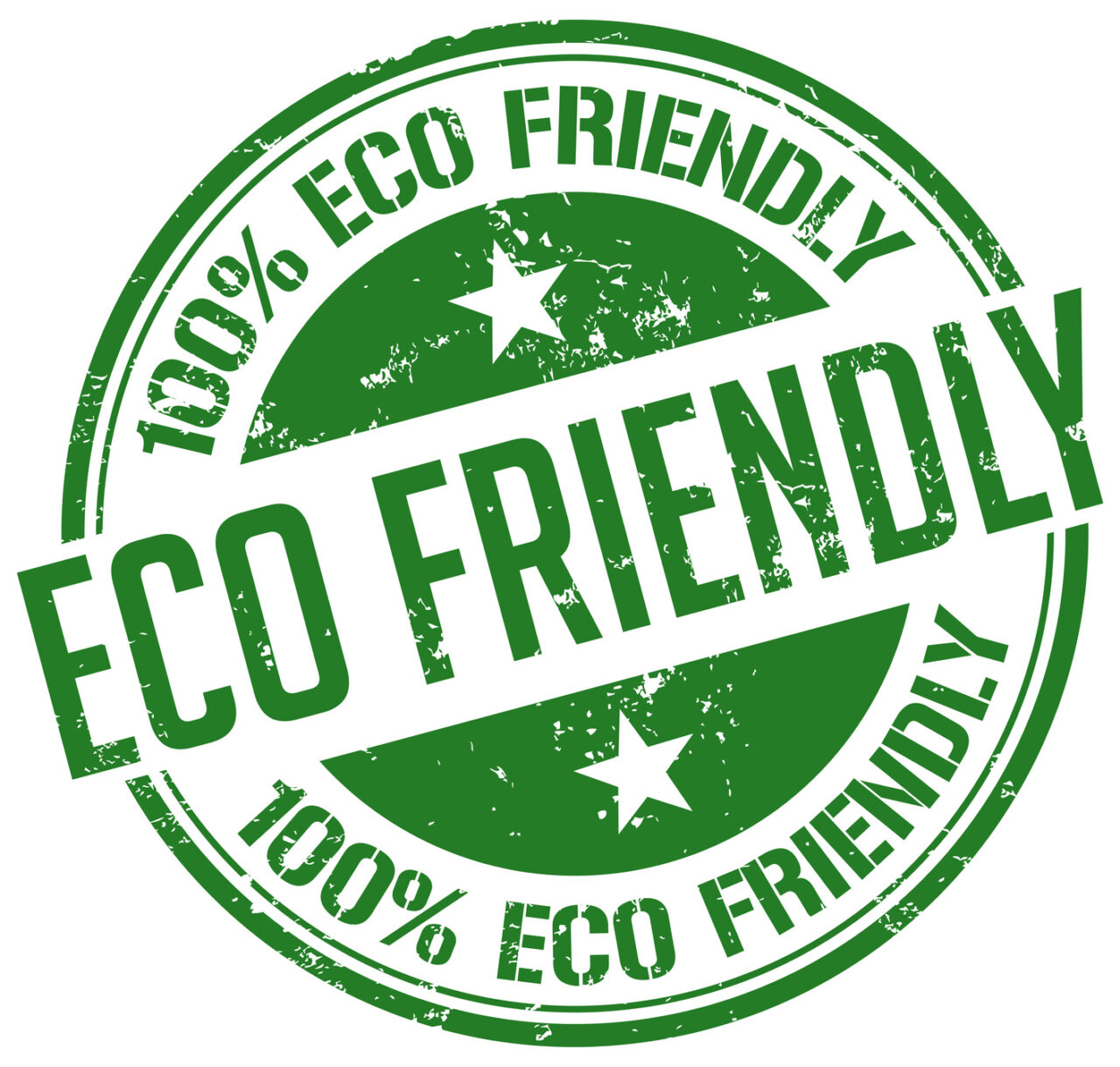
Why?
- All products we use eventually end up in the atmosphere or in waterways. They can then change the microenvironment and affect the animals living within them. Using environmentally friendly products reduces the pollution of the atmosphere and waterways in this way.
- Household products are often made from toxic chemicals that affect our health. Environmentally friendly products are generally made from safer, more natural ingredients and are therefore better for our health, our children’s health and our pets’ health.
- They can be more affordable than regular products (the list of products I have made below are).
- They are generally nicer smelling (don’t smell like chemicals, eugh!) and less harsh on your skin.
How?
- Switch brand name cleaners for regular household items
- White vinegar can be used instead of floor cleaner, toilet cleaner, spray & wipe, glass cleaner etc. Using one item for multiple uses instead of having a specialty product for each also reduces plastic consumption and cost!
- A few drops of essential oil in a spray bottle of water can be used as air freshener
- Switch to affordable, environmentally friendly, vegan brands:
- Sukin (face, body & hair care products, available at most chemists)
- Natural Instinct (hair, skincare & sun products, available at most chemists)
- Natio (skincare, sun products & makeup, available at most chemists)
- Thankyou (water, personal care, baby care & nappies – available at Coles & Woolworths). 100% of profits are donated to helping people in poverty!
- Natures Organics (Organic Care – personal care and hair care, and Earth Choice – most household cleaning products. Available at Coles & Woolworths)
- Grant’s Toothpaste (available at Coles & Woolworths)
- Who Gives a Crap toilet paper (available online) 100% recycled toilet paper, 50% of profits donated to help build toilets, made without trees.
- STOP BUYING PLASTIC TOOTHBRUSHES – Australians throw away 30 million toothbrushes every year! None of that plastic will even break down in our lifetime! You can now buy bamboo toothbrushes instead. The ends can be composted and the heads placed in your recycling bin. Bamboo is the fastest growing plant so sustainability isn’t an issue. There are a few brands that make them and most health food or eco-friendly stores sell them. Alternatively you can buy them online from Environmental Toothbrush or grab this Eco Smile Kit which also includes a metal tongue scraper and activated charcoal toothpaste (that comes in a tin not a plastic tube)
- Have a look at this great article for more Eco-Friendly Products We Should All Be Using
3. RECYCLE
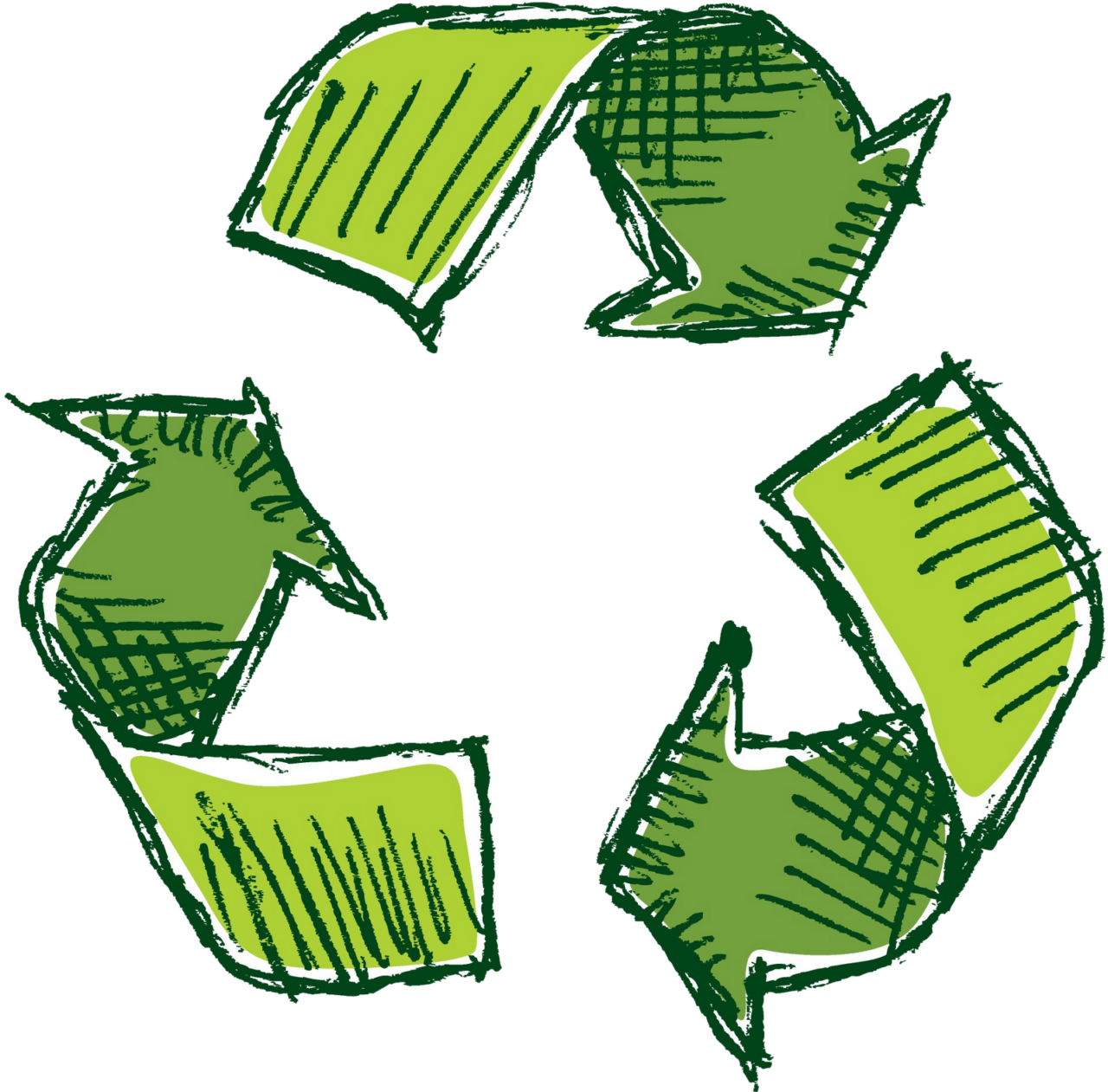
Why?
- It conserves resources and protects natural habitats. It allows the conversion of existing materials into new products instead of using fresh, natural resources. These resources are obtained through deforestation and mining.
- It conserves energy. Converting existing materials into new products uses much less energy than creating new products from raw resources.
- It protects the environment. The extraction, refining and processing of raw materials produces greenhouse gases, contributes to air pollution, and causes deforestation (that destroys natural habitats and contributes to global warming). Recycling reduces the need for this.
Current UK recycling is estimated to save more than 18 million tonnes of CO2 a year – the equivalent to taking 5 million cars off the road.
Recycle Now
- Recycling reduces landfill. Recycling products into new materials means they don’t end up in landfill piles. This reduces the amount of rubbish sent to landfill. Landfill sites create huge amounts of greenhouse gases, and water and air pollution. Also, when rubbish flies off landfill sites it causes habitat destruction and kills animals.
- The amount of waste we produce is increasing. As developing countries start adopting western ways of living their waste production rises. Our consumption of fast food, fast fashion and fast technology all produce excess, unnecessary waste.
- More information on why recycling is important and why we should recycle
How?
- All your paper, cardboard, metal and recyclable plastics (please check to see if it has a recycle symbol on it) should be put in the RECYCLE BIN NOT THE NORMAL BIN!
- Collect all soft, scrunchable plastics (the ones that CANNOT be recycled through your household recycle bin) and deposit them in a RedCycle collection point at participating Coles and Woolworths supermarkets. The plastics are repurposed into furniture for schools and kindergartens! Find a participating store near you
- Soft plastics include:
- Plastic shopping bags
- Bread, rice and pasta bags
- Biscuit packets and trays
- Frozen food bags
- Confectionery (lolly) packets
- Newspaper wrap
- Bubble wrap
- Dry cleaning bags
- Old green (and other re-usable) bags
- Soft plastics include:
4. Cut down or stop using disposable and single-use items
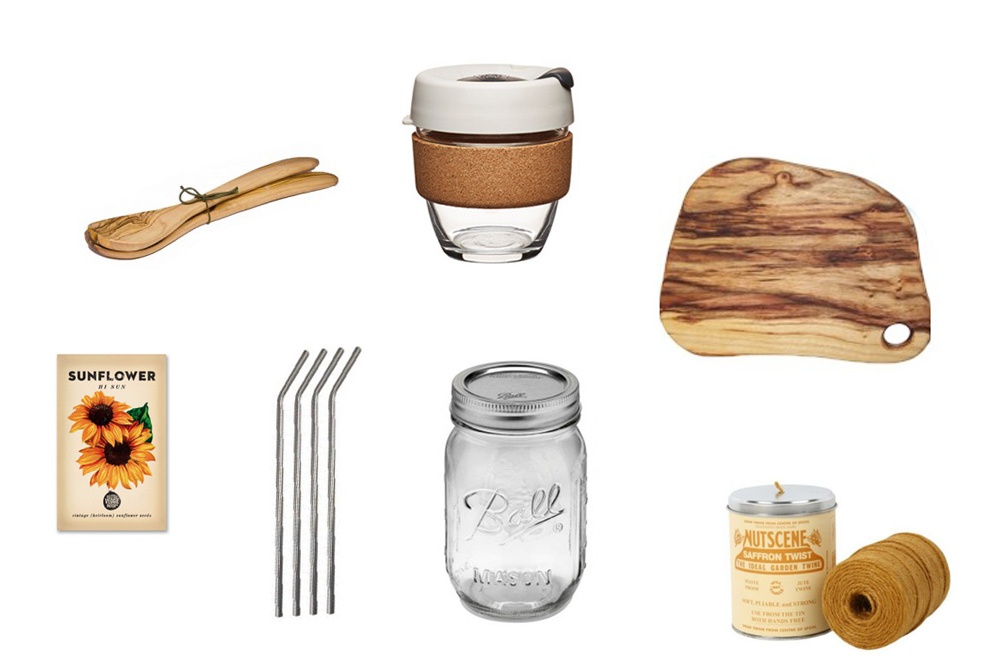
Why?
- It saves you money
- It reduces waste. Like I’ve already said, less waste is sent to landfill, diminishing the harm caused to the environment as a result.
How?
- Try to switch using disposable items for reusable ones:
- Carry with you a set of reusable bamboo cutlery instead of having to use plastic disposable ones when you buy takeaway food
- SAY NO TO PLASTIC STRAWS! Just don’t use a straw at all, or buy a reusable one and leave it in your bag. Glass, metal or bamboo straws are available from eco stores and online. This eco cutlery set includes a bamboo straw too!
- STOP USING CLING WRAP! I just cover my leftovers with another plate on top. It’s so simple! You can also buy reusable food wraps (they are made with beeswax so some vegans might not agree with this) which you can use to cover plates and bowls and also fruit and vegetables.
- Buy a reusable water bottle instead of constantly buying plastic bottles – they are better for your health anyway!
- Grab a reusable coffee cup and take it with you whenever you get your takeaway coffee or hot drink. Pottery For The Planet makes some absolutely GORGEOUS ones!
- Switch to a menstrual/diva cup and period-proof underwear instead of using pads and tampons
- Switch to reusable diapers instead of disposable ones
- Buy a metal razor with replaceable blades instead of using disposable plastic ones. Check out this Shave Kit which comes with a reusable rose gold shaver, 10 pack of razor blades, a wooden shave brush and a vegan shave soap bar!
- Use a reusable kitchen cloth instead of paper towels to clean your kitchen bench top
- Use cloth napkins instead of disposable paper ones
- Think of your own and share!
- Have a look at this great article for more Eco-Friendly Products We Should All Be Using
5. Change your light bulbs
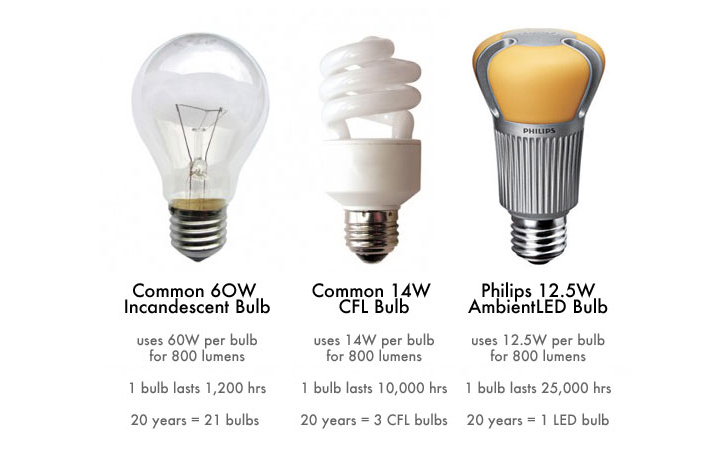
Why?
- We have the technology to switch to a much more economical and environmentally friendly type of light bulb so why don’t we!
- Here’s the breakdown: ‘old’ light bulbs are called incandescent or halogen bulbs and they are very inefficient. Two new technologies exist: light emitting diodes (LEDs), which are slightly newer and more efficient, and compact fluorescent light bulbs (CFLs).
- CFLs:
- Last on average 12 times longer
- Generate up to 70% less heat
- Reduce the amount of energy they use for lighting by 50% or more
- Cost less to run
- LEDs:
- Use approximately 10% of the energy of a halogen bulb. A 10W LED is equivalent to a 100W halogen bulb!
- Last approximately 15 years!
- Remember, even if you have solar panels installed and most of your energy during the day comes from these, you use lights only at night so all the energy they use comes from non-sustainable sources!
How?
- Replace incandescent bulbs with light emitting diodes (LEDs) or compact fluorescent light bulbs (CFLs)
- Make sure you recycle your CFLs so they don’t end up in landfills. They contain mercury, a toxic heavy metal
- LEDs use slightly less energy than CFLs, they turn on instantly unlike CFLs, and they do not contain any mercury
- Read these articles for more information on how to switch to LEDs and how to buy the best lightbulbs
Bonus round…Switch household plastic items for more sustainable materials
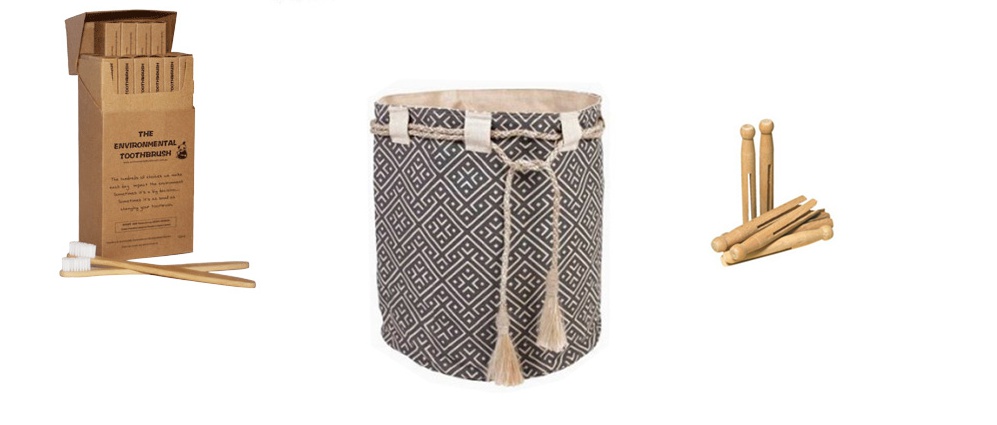
- Use bamboo or metal pegs instead of plastic ones
- Buy a biodegradable loofah sponge (this is actually a vegetable!!) instead of plastic brushes and sponges to clean your dishes. Or better yet, plant your own loofah plant and give them away as gifts to all your friends and family!
- Switch plastic containers and lunchboxes for glass or metal lunchboxes
- I’ve already mentioned this but Ima mention it again! Switch plastic toothbrushes for bamboo toothbrushes or grab this Eco Smile Kit which also includes a metal tongue scraper and activated charcoal toothpaste (that comes in a tin not a plastic tube)
- Have a look at this great article for more Eco-Friendly Products We Should All Be Using
Oh and how could I forget…? GO PLANT-BASED!
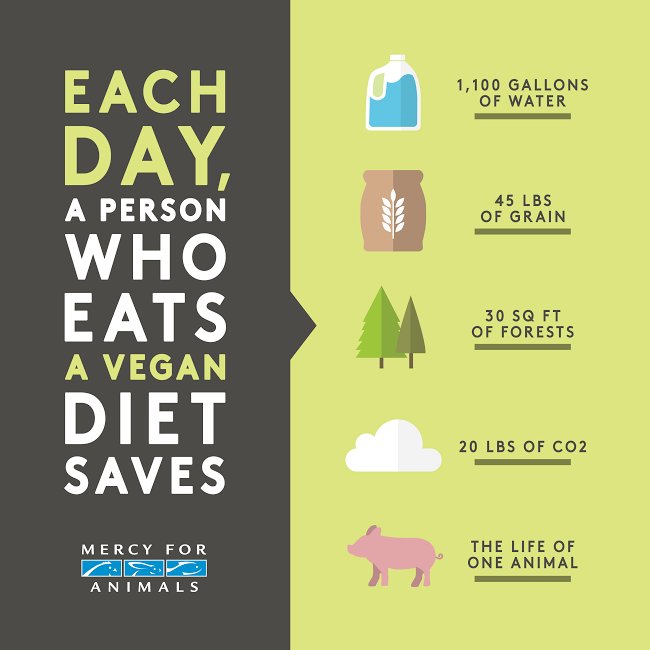
Why?
Even well-managed meat production has a greater environmental impact than vegetables, study finds.
We could cut our agricultural land use by 76 per cent, if we got rid of meat…a vegan world would produce 49 per cent less food-based greenhouse gas emissions, 50 per cent less acidification on land, 49 per cent less eutrophication, and would use 19 per cent less water to meet our food-energy demands.
ABC Science News
Even switching to a vegan or plant-based diet for only one day a week has a huge impact!
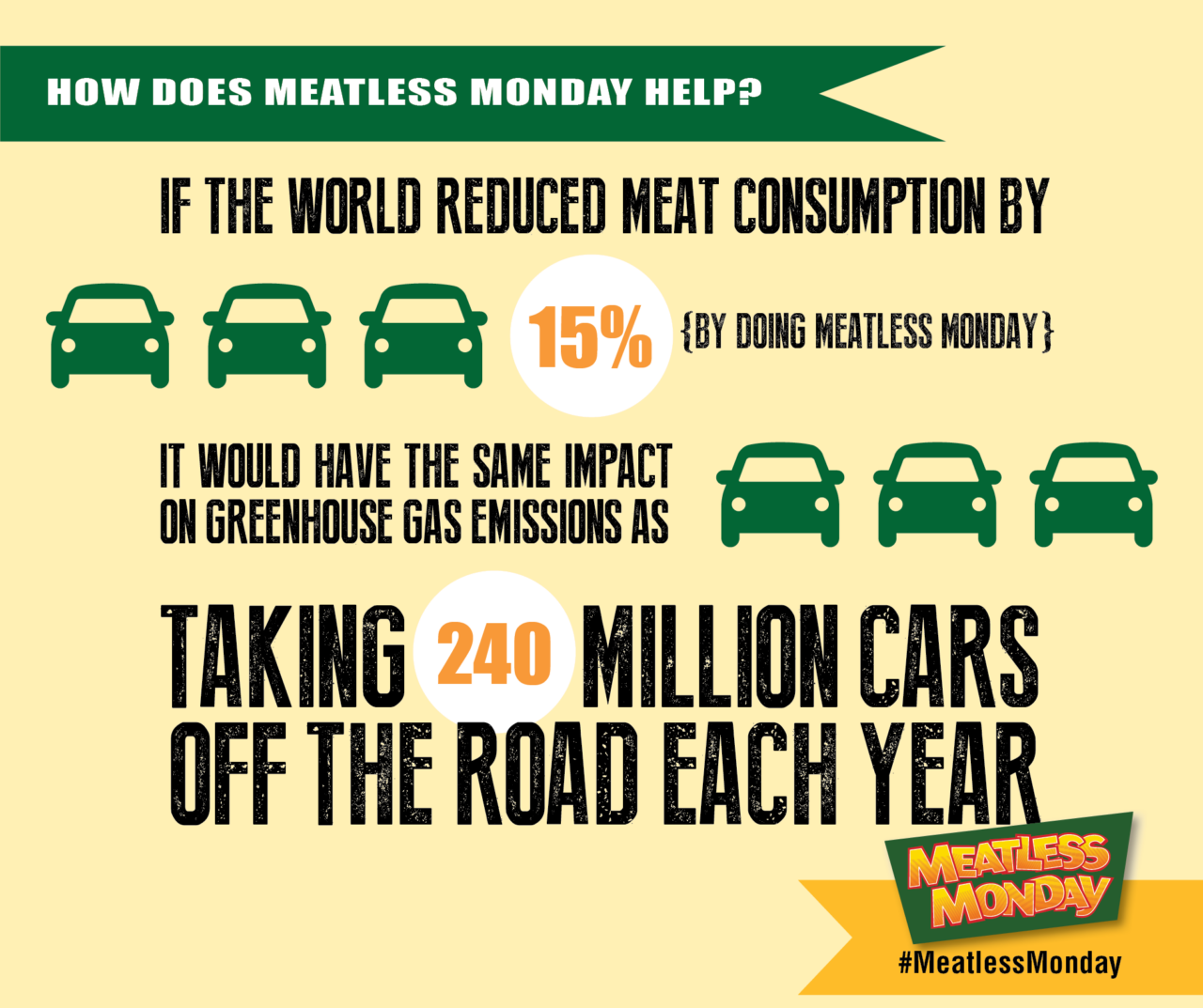
How?
- Ready my blog post How the Hell am I Meant to go Vegetarian/Vegan?
- Have a look at my free vegan and vegetarian recipes and my vegan cookbooks!
I hope you loved these 5 simple ways to reduce your environmental footprint. Stay tuned for even more ways to reduce your environmental footprint in my coming blogs!

